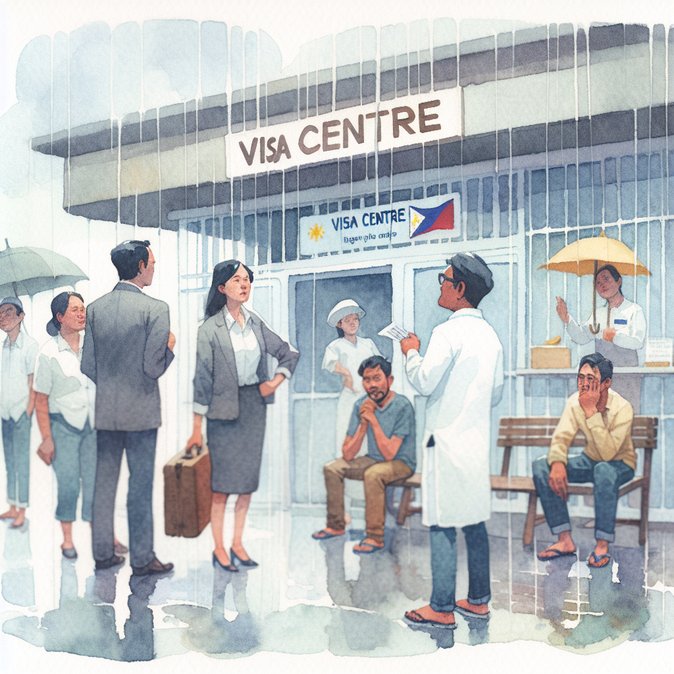
The French Embassy’s outsourced Visa Application Centre (VAC) in Cebu, operated by TLScontact, announced that it would close on Tuesday 4 November after local authorities issued storm warnings for Typhoon Tino. All appointments scheduled for that date have been cancelled and affected applicants—largely Filipino business travellers, students and seafarers heading to France or other Schengen countries—must rebook via the France-Visas portal.
The one-day shutdown highlights the vulnerability of decentralised visa operations to climatic events. Cebu processes hundreds of French short- and long-stay visa files each week, serving applicants from the Visayas and Mindanao who would otherwise need to fly to Manila. While the centre’s IT platform remains live, biometric capture cannot be carried out until staff return and power supplies are stabilised. Applicants with imminent departure dates are advised to contact the VAC’s hotline for priority slots once the typhoon passes.
![Typhoon Tino forces closure of France Visa Application Centre in Cebu]()
For French employers sourcing Filipino talent—particularly in hospitality, maritime and IT outsourcing—HR teams should build extra lead-time into deployment schedules during the Pacific cyclone season. Mobility practitioners should also remind assignees that passports must be valid for at least three months beyond the intended Schengen exit date and that courier return of stamped travel documents can be delayed when flights are grounded.
The Embassy stated that visa operations in Manila and Davao remain open, but warned that courier transfers between centres could be disrupted by heavy rains. The episode underscores the importance of contingency plans such as holding buffer appointments in alternative cities and using electronic copies of decision letters where permissible.
TLScontact says its redesigned website, launched 27 October, allows real-time rescheduling and will automatically waive re-booking fees for those hit by weather-related closures. Normal service in Cebu is expected to resume on 5 November, subject to infrastructure inspections.
The one-day shutdown highlights the vulnerability of decentralised visa operations to climatic events. Cebu processes hundreds of French short- and long-stay visa files each week, serving applicants from the Visayas and Mindanao who would otherwise need to fly to Manila. While the centre’s IT platform remains live, biometric capture cannot be carried out until staff return and power supplies are stabilised. Applicants with imminent departure dates are advised to contact the VAC’s hotline for priority slots once the typhoon passes.

For French employers sourcing Filipino talent—particularly in hospitality, maritime and IT outsourcing—HR teams should build extra lead-time into deployment schedules during the Pacific cyclone season. Mobility practitioners should also remind assignees that passports must be valid for at least three months beyond the intended Schengen exit date and that courier return of stamped travel documents can be delayed when flights are grounded.
The Embassy stated that visa operations in Manila and Davao remain open, but warned that courier transfers between centres could be disrupted by heavy rains. The episode underscores the importance of contingency plans such as holding buffer appointments in alternative cities and using electronic copies of decision letters where permissible.
TLScontact says its redesigned website, launched 27 October, allows real-time rescheduling and will automatically waive re-booking fees for those hit by weather-related closures. Normal service in Cebu is expected to resume on 5 November, subject to infrastructure inspections.








